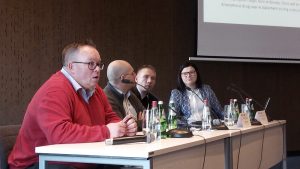At their 1330th meeting, the Council of Europe Committee of Ministers adopted a Recommendation CM/Rec(2018)11 on the need to strengthen the protection and promotion of the civil society space in Europe and encouraged member States to continue their efforts in this respect.
The Recommendation calls on CoE member states to comply with the principles that it sets out, to ensure its wide dissemination among competent authorities and stakeholders and to examine its implementation five years after its adoption, within the Council of Ministers.
 In particular, it sets out recommendations in four sections:
In particular, it sets out recommendations in four sections:
- National legal framework and political and public environment to protect and promote civil society space
- National measures to protect civil society space
- National measures to promote civil society space
- Support from Council of Europe bodies and institutions
The Council of Europe Recommends that the governments of member States:
- Ensure that the principles set out in the appendix to this Recommendation are complied with in relevant national legislation and practice, and evaluate the effectiveness of the measures taken;
- Ensure, by appropriate means and action – including, where appropriate, translation – a wide dissemination of this Recommendation among competent authorities and stakeholders;
- Examine, within the Committee of Ministers, the implementation of this Recommendation five years after its adoption.
To download the Recommendation, follow this link>>>>






